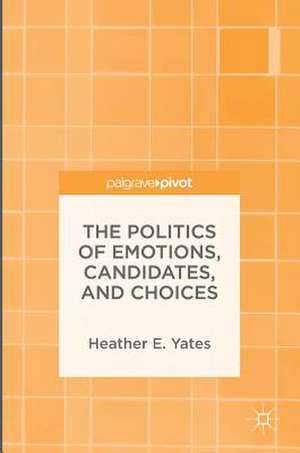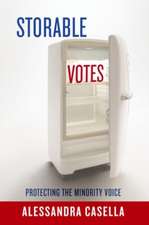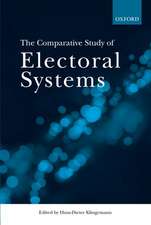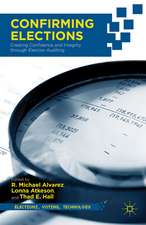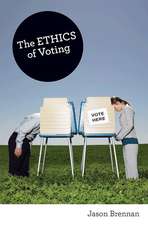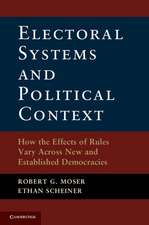The Politics of Emotions, Candidates, and Choices
Autor Heather E. Yatesen Limba Engleză Hardback – 14 mai 2016
Preț: 382.75 lei
Nou
Puncte Express: 574
Preț estimativ în valută:
73.24€ • 76.74$ • 60.55£
73.24€ • 76.74$ • 60.55£
Carte tipărită la comandă
Livrare economică 12-26 aprilie
Preluare comenzi: 021 569.72.76
Specificații
ISBN-13: 9781137515261
ISBN-10: 1137515260
Pagini: 126
Ilustrații: X, 139 p.
Dimensiuni: 148 x 210 x 14 mm
Greutate: 0.29 kg
Ediția:1st ed. 2016
Editura: Palgrave Macmillan US
Colecția Palgrave Pivot
Locul publicării:New York, United States
ISBN-10: 1137515260
Pagini: 126
Ilustrații: X, 139 p.
Dimensiuni: 148 x 210 x 14 mm
Greutate: 0.29 kg
Ediția:1st ed. 2016
Editura: Palgrave Macmillan US
Colecția Palgrave Pivot
Locul publicării:New York, United States
Cuprins
Introduction Vindicating the Emotional Citizen .- Chapter 1 The Marketplace of Emotions .- Chapter 2 Mission Accomplished-The Reelection of George W. Bush.- Chapter 3 The New Politics of Hope and Change .- Chapter 4 Renewed Awareness: perspectives on gender and race .- Chapter 5 Hope is a Renewable Resource .- Chapter 6 The Politics of Emotions, Campaigns and Looking Ahead .- Bibliography.
Recenzii
Notă biografică
Heather E. Yates is Assistant Professor of American Politics at the University of Central Arkansas, USA. She specializes in political behavior research that addresses questions involving campaigns and elections, interest groups, identity politics and especially, women in politics. Dr. Yates has co-authored research with her advisor, Dr. Allan Cigler, on pre-reform era Interest Groups strategies.
Textul de pe ultima copertă
This book dynamically shows that political campaigns matter to electoral outcomes, by analyzing the dynamics of emotional voter and decision-making over the course of three presidential elections between 2004 and 2012. Each presidential campaign reflects a unique tone and electoral mood, which influences voters’ perceptions of electoral choices and a candidate’s image. Controlling for the idiosyncratic nature of a campaign environment and a candidate’s message, this analysis isolates specific emotional dimensions that were influential on voters’ appraisals of specific campaign issues. Relying on the Affective Intelligence theory and the Transfer-of-Affect thesis to narrative the causal relationships between voters’ emotional responses and issue appraisals, the author illustrates specific contexts where voters’ emotional responses toward presidential candidates are interpreted as trusted political cues and therefore, get transferred to their beliefs about certain policies.
